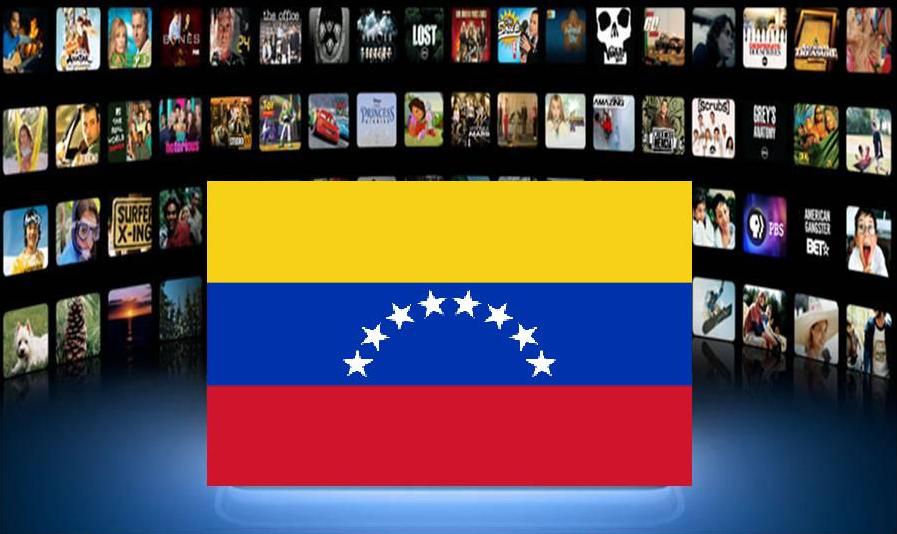Propaganda Galore

“In Hugo Chávez’s Venezuela there is no free press—just state controlled anti-American propaganda.” Republican Congressman Connie Mack, Florida
“Under Chávez life for Venezuela’s poor only got worse … Public health is deplorable.” Republican former governor Bob Ehrlich, Maryland
President Barack Obama behaves as if he does not understand Latin America and only fitfully addresses its concerns. As a rule he just ignores the region, which, given prior U.S. misconduct in Latin America, could be considered a positive development except that his lack of interest in Latin America has meant there has been no reassessment of past policies. From the continuation of the war on illegal drugs, the beefing up the U.S. border patrol, or pressuring of Latin American states to adopt Republican-style free market policies, Obama has allowed aimless inertia to guide U.S. foreign policy for the region. These policies continue, zombie-like, staggering onward. When it comes to Latin America, the Obama camp is proving as intellectually incurious as the administration of George W. Bush.
Now the U.S. has rejected any notion of joining the family of American nations in recognizing the lawful victory of Chávez protégé Nicolás Maduro in last month’s presidential election in Venezuela. While the opposition is claiming election rigging, more than 170 international observers were present throughout the country, verifying the honesty of the Venezuelan electoral process. The election results have been endorsed by José Miguel Insulza, the Secretary-General of Organization of American States, and even by some ranked officials of the opposition.
Obama’s decision to challenge the legitimacy of the election seems to be informed by a naïve willingness to believe the self–serving inventions of the well-financed anti-Chávez and anti-Maduro smear machine. Like too many other ill – informed American political figures, Obama seems to have uncritically accepted the conclusions of the Venezuelan opposition, members of its middle-class and its favored élites who have long nursed a profound and racially-tinged disdain for Chávez.
This anti-Chávez and now anti-Maduro animosity is constructed around two persistent political myths about Venezuela: one is that there is no freedom of the press, and two, that Bolivarian Revolution’s economic and social policies are deeply irresponsible and wholly ineffective.
The truth is that five of the major free over-the-air TV networks in Venezuela are anti-Chávez/Maduro or are neutral. State television enjoys but a five percent share of the viewing audience. Nine of the country’s ten major newspapers are anti-Chávez/Maduro, and no major newspaper is state-run. In reality, most of the key media sources in Venezuela are not at all state-controlled but, quite to the contrary, are viciously, irresponsibly, and relentlessly anti-government. Right-wing propaganda dominates the news message (think of a world where there is Fox News, joined by über-Fox News, but no MSNBC). This fact-challenged hard-right view is served up in the United States as the simple truth about Venezuelan realities, just passed on without inspection by gullible or ineffectual U.S. reporters.
There are problems in Venezuela, most seriously the episodic food shortages and out of control street crime, and these areas Maduro is pledging address as top priorities. Yet these concerns notwithstanding, Venezuela has, in many respects, clearly prospered under the Bolivarian Revolution. Annual GDP growth has been good during the Chávez years. After getting off to bad start, Venezuela hit 16.8 percent GDP growth for in 2004, and remained strong until the global downturn of 2008 and 2009. Venezuela recoved to growth at 4.2 percent in 2011 and 5.7 percent last year. The World Bank reports that under Chávez the number of Venezuelans living in poverty fell from 50 percent when he came to office to 31.9 percent in 2011. Chávez advanced successful programs to extend literacy and address housing shortages. Important gains have been achieved in health care and, under Chávez, the number of local primary care centers expanded from 1,628 in 1998 to 8,621 by 2007. These clinics are maintained by the people who live in the adjacent communities and characteristically are staffed by the Cuban physicians who have come to live Venezuela’s most impoverished neighborhoods to minister to the needs of the poor. Their efforts have been hugely successful. The CIA Factbook reports that the infant mortality rate in Venezuela fell from 26.17 in 2000 to 20.18 last year. Few indices could be more important than this.
During the 1998 election campaign, an anti-Chávez ad played on endless loop on the television. The ad featured an apparent recording of Chávez boasting that if elected he would “fry the heads” of his opponents. Of course, the ad was an unmitigated fake, which was revealed when an actor came forward to accept credit for his work in imitating Chávez’s voice. (The actor did not know that this recording would be used in a campaign commercial.) Hoping to set the matter to rest, Chávez jocularly issued a press release, explaining that despite all of the allegations, he did not “drink human blood or eat fried babies for breakfast.”
No, he didn’t, nor too does Maduro, but many Americans might well think so if the U.S. press continues to do such a poor job in reporting on Venezuela. Obama is failing to carry out due diligence in getting information about Venezuela. He should get better informed, and he should recognize the Maduro government immediately.
Dr. Ronn Pineo, Senior Research Fellow at the Council on Hemispheric Affairs, and Professor and Chair of the Department of History at Towson University
Please accept this article as a free contribution from COHA, but if re-posting, please afford authorial and institutional attribution. Exclusive rights can be negotiated.
For additional news or analysis on Latin America, please go to: Latin News

